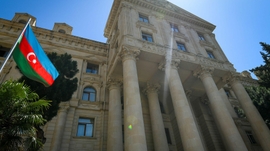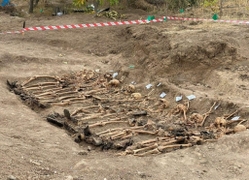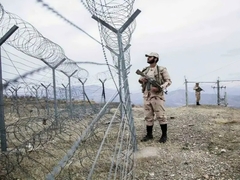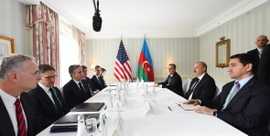Qatari Emir Sheikh Tamim bin Hamad Al Thani and Iranian Foreign Minister Hossein Amir-Abdollahian met in Doha on Tuesday to discuss regional developments and Tehran’s nuclear negotiations.
Amir-Abdollahian arrived in Qatar a day earlier on the first leg of his official visit to Persian Gulf states to discuss negotiations on the revival of the 2015 Iran nuclear deal (the Joint Comprehensive Plan of Action or JCPOA) and the removal of Western sanctions imposed on Tehran.
In the meeting with Sheikh Tamim, Amir-Abdollahian emphasized Tehran’s readiness to work with Qatar in expanding relations in different bilateral areas and to speed up the implementation of previous trade and economic agreements between the two countries. He also called for enhancing talks and cooperation among the eight Persian Gulf countries to establish a collective mechanism for preserving their joint interests and security.
The Qatari emir, in turn, expressed his satisfaction with the strong and sincere ties between Qatar and Iran, stating that Iran has a special place in the region and that Qatar has no limits when it comes to expanding ties with Iran. Sheikh Tamim further expressed pleasure with the progress in ties between Tehran and Doha, emphasizing the need for both sides to step up their joint efforts to achieve the goals set during trade and economic talks between him and Iranian President Raisi.
Following the meeting, the Iranian foreign minister took to Twitter, stating that the trip aligned with the government’s commitment to maintaining a “balanced foreign policy” and furthering the “ongoing comprehensive development of ties with neighboring nations.”
Since June 2017, Tehran and Doha have experienced growing economic and political relations, particularly after Iran extended its full support to Qatar when it faced a blockade by Saudi Arabia and several other countries in the region.
The South Pars/North Dome field, shared between Iran and Qatar, is the largest gas field in the world, covering 9,700 square kilometers of the two countries’ territorial waters in the Persian Gulf. Recent years have seen collective output from the field reach approximately 1.4 billion cubic meters per day.
Meanwhile, on the same day, Qatari Prime Minister and Minister of Foreign Affairs Mohammed bin Abdul Rahman Al Thani held discussions with visiting European Union (EU) diplomat Enrique Mora regarding efforts to revive the nuclear deal. This meeting took place amidst speculation that Iranian Deputy Foreign Minister Ali Bagheri Kan and Mora were due to meet in Doha to discuss the revival of the nuclear deal.
Earlier, some media outlets claimed that the US and Iran held indirect talks in Oman the previous month. Axios, a US website, reported on June 9 that Omani officials acted as intermediaries between US and Iranian officials, “shuttling between separate rooms to deliver messages.
According to Axios, the US delegation in Oman included White House Middle East coordinator Brett McGurk, while the Iranian delegation included top nuclear negotiator Ali Bagheri Kan. The report also mentioned that the US had “made it clear that Iran will pay a heavy price if it moves forward with 90% uranium enrichment — the level needed to produce a nuclear weapon,” the report added.
It remains unclear whether the parties are close to reaching such an understanding. However, Iran’s permanent mission to the UN denied the existence of any “interim deal” to replace the 2015 Joint Comprehensive Plan of Action.
Addressing Iran’s top nuclear scientists on June 11, Iranian Supreme Leader Ali Khamenei expressed openness to reaching a nuclear deal with the West, stating that “if you want to make a deal, make a deal.” Khamenei made these comments after visiting a private exhibition showcasing nuclear achievements.
The United States, Ukraine, the United Kingdom, France, and Germany have all stated that the supply of Iranian-made drones to Russia violates a 2015 UN Security Council resolution endorsing the Iran nuclear deal.


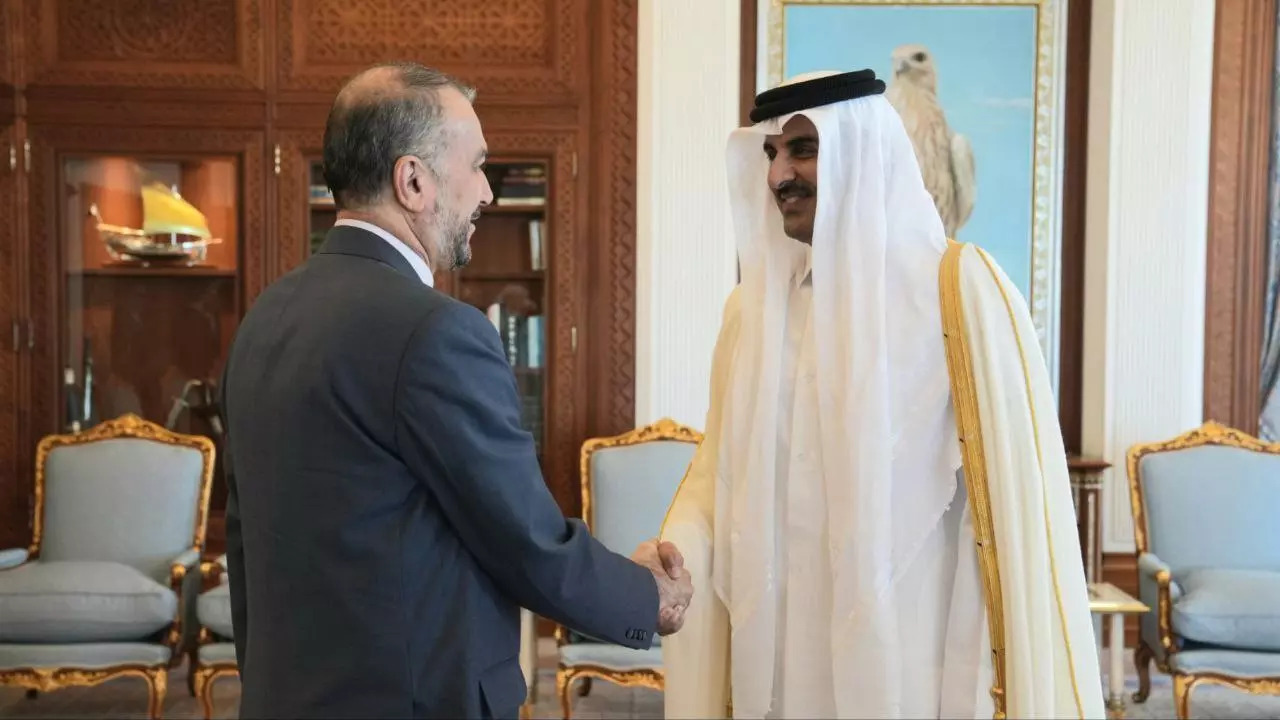




 U.S. Secretary of State Antony Blinken reiterated Washington’s unwavering support for the ongoing peace process between Azerbaijan and Armenia in a...
U.S. Secretary of State Antony Blinken reiterated Washington’s unwavering support for the ongoing peace process between Azerbaijan and Armenia in a...
 Iran is moving to fortify its eastern border with Afghanistan in a bid to fight illegal migration and drug trafficking, along with enhancing security.
Iran is moving to fortify its eastern border with Afghanistan in a bid to fight illegal migration and drug trafficking, along with enhancing security.
 The Iranian and Cuban transport ministers have discussed expanding maritime and air transportation cooperation.
The Iranian and Cuban transport ministers have discussed expanding maritime and air transportation cooperation.
 Kyrgyzstan has joined the extensive reconstruction efforts in the Karabakh region of Azerbaijan, after a series of mega initiatives were launched b...
Kyrgyzstan has joined the extensive reconstruction efforts in the Karabakh region of Azerbaijan, after a series of mega initiatives were launched b...
